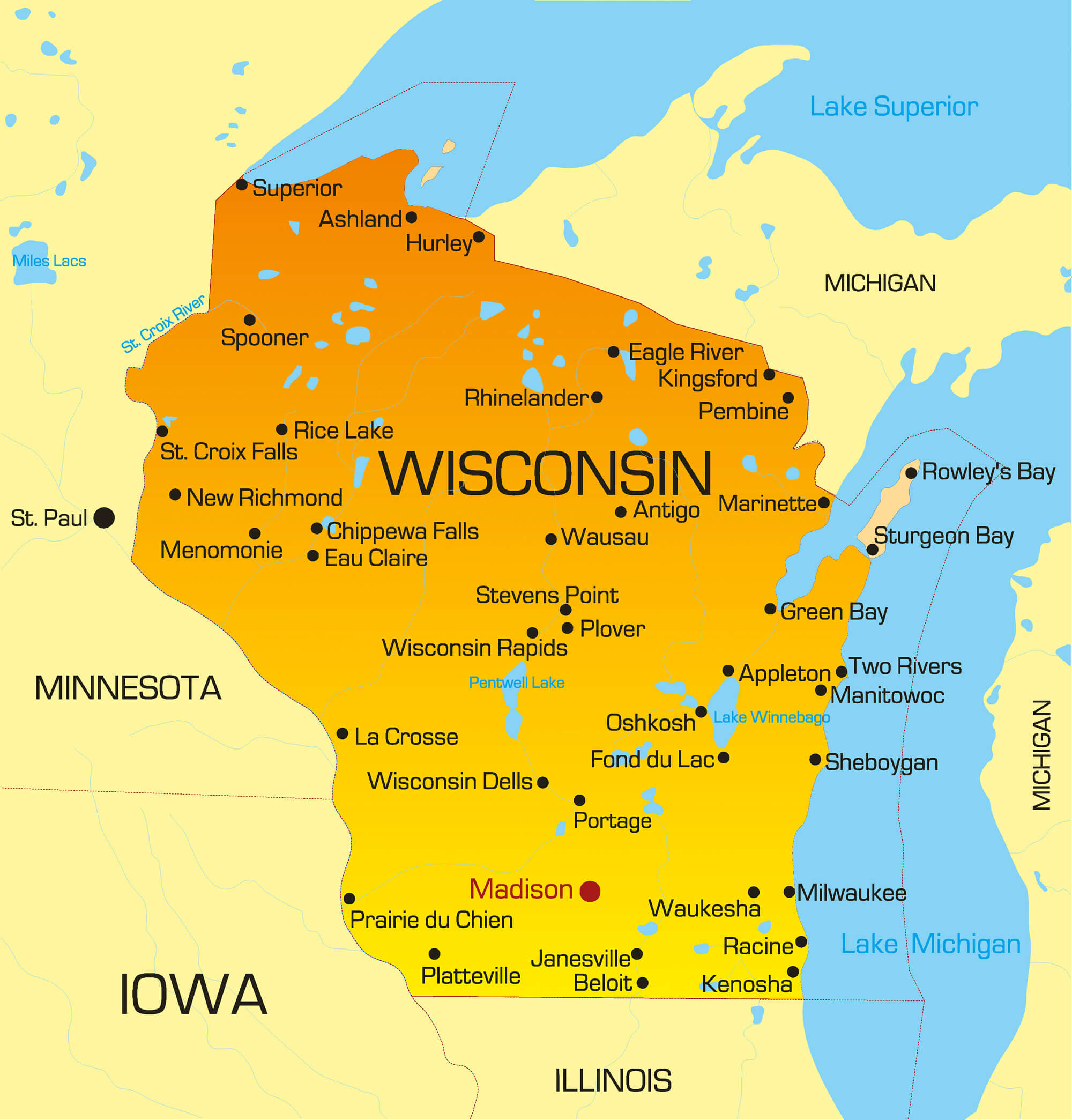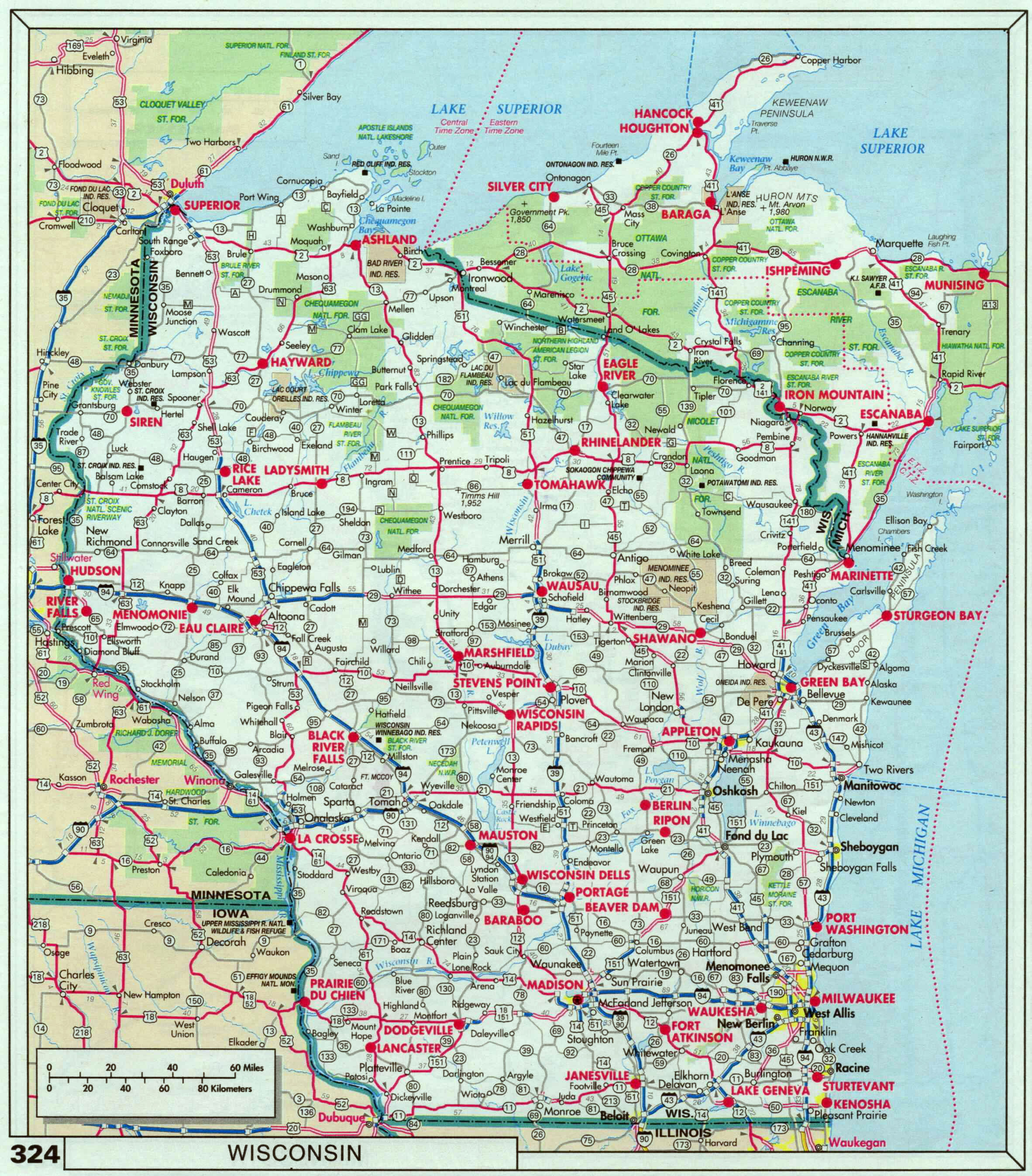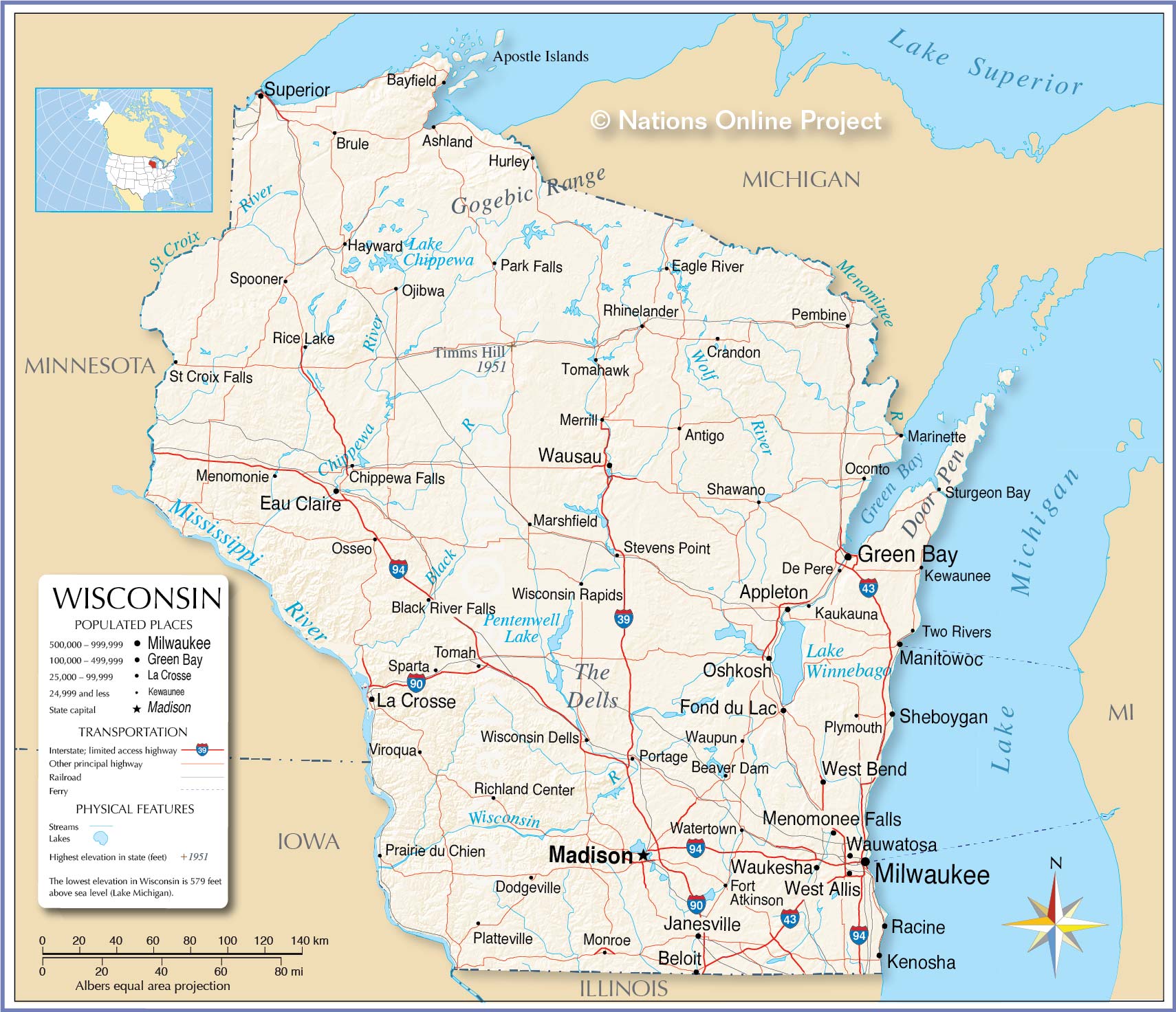Understanding Why Wisconsin Teachers Resign: A Community Look At The Impact
It's a conversation that has been quietly growing in many towns across the Badger State, and it really touches the heart of our communities. When we hear that wisconsin teachers resign, it brings up questions about what this means for our schools and, you know, the young people who learn there. It’s a topic that, honestly, affects everyone, from the families whose kids go to school each day to the folks who simply care about the future of Wisconsin, a place known for its dairy farming, cheesemaking, and quite a lot of unforgettable fun on its miles of fresh shorelines.
This trend, where teachers choose to leave their roles, is something many communities are thinking about right now. It is that feeling of concern that prompts us to ask why this might be happening and what the wider effects could be. We value our educators, who work hard in places from Milwaukee, the biggest city, to Madison, the capital, and all the smaller towns in between, shaping young minds in a state that was admitted to the union as the 30th state in 1848, a long time ago, you see.
So, this article is here to help us think about the reasons why wisconsin teachers resign, and how this might change things for students, families, and the overall spirit of our schools. We'll also look at how we, as Wisconsinites and cheeseheads, can better support the people who teach our children, because that is pretty important for our collective well-being, isn't it?
- Calling Amazon
- Shopritetore Locator Pa
- Deandre Hopkins Height Weight
- Msnbc Lawrence O Donnell Last Word
- Jaguars Qbs
Table of Contents
- The Growing Trend: Why Teachers Are Leaving
- What It Means for Our Students and Schools
- Community Support: How We Can Help
- Looking Ahead: The Future of Education in Wisconsin
- Frequently Asked Questions About Teacher Resignations
The Growing Trend: Why Teachers Are Leaving
When we talk about why wisconsin teachers resign, it's not usually about one single thing. It’s more like a mix of different pressures that, you know, build up over time. Many teachers, in Wisconsin and elsewhere, often mention things like the sheer amount of work they have to do, which can be pretty demanding. They also talk about how much support they feel they get, or sometimes, how little of it there is, which is a bit of a challenge for them.
There is also the matter of how much teachers are paid for the very important work they do. For many, the money they earn might not seem to match the effort and the long hours they put in, especially when they compare it to other jobs that require a similar level of education. This can make it hard to stay, particularly when living costs keep going up, which is something we all notice, isn't it?
Sometimes, too, teachers feel like they don't have enough say in decisions that affect their classrooms or their students. This lack of a voice can be frustrating for people who are passionate about teaching and who know what their students need. It's almost as if they are trying their best, but some bigger forces are at play, you know?
- Nate Robinson Draft Pick
- Best Blue Oyster Cultongs
- Road Closures In Kansas
- Timeless Tours
- Power Outage Entergy
The daily environment in schools can also play a part. Teachers are there to help every student, and sometimes that means dealing with situations that are quite difficult, like managing large class sizes or handling student behavior issues without enough help. This can really add to the stress of the job, making it a less appealing place to stay for some, that is for sure.
Another thing that teachers sometimes mention is the feeling of being undervalued by society or even by the system itself. They dedicate their lives to helping young people grow, yet they might not always feel the respect or appreciation they deserve. This can be very disheartening, especially for those who genuinely love teaching, and it’s something we should probably think about more often.
Then there are the changes in education policies that come and go, which can sometimes make teachers feel like they are constantly adapting to new rules and expectations. This constant shift can be tiring and, you know, make it hard to plan for the long term. It’s a bit like trying to build something when the ground underneath you keeps moving, isn't it?
Some teachers might also feel a sense of burnout, especially after particularly challenging times, like the past few years. The emotional toll of caring for students, adapting to new teaching methods, and dealing with various crises can be immense. It's a job that requires a lot of emotional energy, and sometimes that well can just run dry, which is totally understandable.
So, when we look at why wisconsin teachers resign, it's a complicated picture. It involves personal well-being, financial considerations, professional satisfaction, and the overall support system in place. Addressing this means looking at all these different parts, because each one plays a role in a teacher's decision to stay or to leave, and that is a pretty big deal for our communities.
What It Means for Our Students and Schools
When wisconsin teachers resign, it creates ripples that spread throughout the school and into the community. The most immediate effect, of course, is on the students. They might experience a change in teachers mid-year, or they might have substitute teachers for longer periods, which can disrupt their learning and their sense of routine, and that is a bit unsettling for young people, you know?
Having new teachers come in frequently can also mean that the school loses some of its experienced staff. These seasoned educators often bring a lot of wisdom and a deep understanding of the students and the community. When they leave, that institutional knowledge goes with them, and it can take time for new teachers to build that same level of connection and understanding, which is really quite important.
For the teachers who stay, the workload can become heavier. Fewer teachers often mean larger class sizes, more duties, and less time for individual student attention. This can lead to increased stress for the remaining staff, and it might even push more teachers to consider leaving, creating a kind of cycle that is hard to break, that is just how it is sometimes.
The overall school environment can also feel the impact. A stable and happy teaching staff often contributes to a positive school culture. When there's a lot of turnover, it can create a feeling of uncertainty or instability, which might affect everyone, from the students to the administrators, and that is not what anyone wants, is it?
From the perspective of parents, it can be worrying to see teachers leave. They want their children to have consistent, quality education, and high teacher turnover can make them wonder about the stability of the school system. This concern is, you know, perfectly natural for anyone who cares about their child's future.
In a state like Wisconsin, which shares borders with four other states—Iowa to the southwest, Illinois to the south, Michigan to the northeast, and Minnesota to the west—and is home to iconic architecture and rich culinary traditions, the quality of education is a very big part of what makes our communities strong. When schools struggle with teacher retention, it can affect the overall appeal and health of a community, which is something we should all be aware of.
Ultimately, the departure of teachers can affect the quality of education itself. While new teachers bring fresh perspectives, a lack of stability can make it harder to build long-term programs, implement consistent teaching strategies, and foster deep relationships between students and educators. This is a challenge that, honestly, needs our collective attention, because our children's education is very important.
Community Support: How We Can Help
So, if we understand why wisconsin teachers resign and what it means, the next natural question is: what can we, as a community, actually do? There are many ways that residents, whether you call them Wisconsinites or cheeseheads, can offer support and help create a better environment for our educators, and that is something we can all work on, you know?
One simple but powerful thing is to show appreciation. A kind word, a thank-you note, or even just acknowledging the hard work teachers do can make a big difference. Teachers, like anyone else, thrive on feeling valued and seen. It's a small gesture, but it can mean a lot, actually.
Supporting school initiatives is another key step. This could mean volunteering your time, even just a little, at school events, joining parent-teacher organizations, or helping with fundraising efforts. When communities are actively involved, it creates a stronger support system for the school and its staff, and that is pretty clear, isn't it?
We can also advocate for policies that support teachers, perhaps by talking to local school boards or state representatives. This could involve discussions about fair pay, manageable class sizes, or providing teachers with more resources and professional development opportunities. Your voice, you know, really does matter in these conversations.
For instance, Wisconsin, which is home to dairy farming and the badger, and offers unique and refreshing eateries and unforgettable fun, is a place where community matters. Supporting our local schools means supporting the people who teach in them, ensuring they feel a part of the broader community fabric, and that is a good thing for everyone.
Encouraging young people in our communities to consider teaching as a career is also vital. By highlighting the positive aspects of the profession and showing them the impact they can have, we can help inspire the next generation of educators. It’s about planting seeds for the future, so to speak, and that is a pretty important job.
Businesses in Wisconsin could also look at ways to partner with schools, offering resources, internships, or even discounts for teachers. This kind of community-business collaboration can help ease some of the financial burdens teachers face and make them feel more connected to the wider community, which is a really positive step, you know?
Ultimately, addressing why wisconsin teachers resign is a shared responsibility. It requires a collective effort from parents, community members, local leaders, and businesses to create an environment where teachers feel supported, respected, and eager to continue their vital work. It’s about building a stronger foundation for our children's education, and that, in a way, benefits all of us.
Looking Ahead: The Future of Education in Wisconsin
Thinking about the future of education in Wisconsin, especially when we consider why wisconsin teachers resign, means we have to be proactive. It's not just about reacting to problems but about imagining what our schools could be with the right support and vision. We want our children to have the best possible learning experiences in a state that offers everything from a brat & brew in Milwaukee to a tour of Lambeau Field or a family trip to Wisconsin Dells, you know.
One key area is fostering a culture of ongoing support and professional growth for teachers. When educators feel they have opportunities to learn new skills, share ideas with colleagues, and grow in their careers, they are more likely to stay. It’s about investing in them as professionals, which is something that pays off in the long run, really.
Another important aspect is ensuring that schools have the resources they need to create positive and manageable learning environments. This includes adequate funding for supplies, technology, and support staff, which can make a big difference in a teacher's daily life. A well-resourced classroom, you know, benefits everyone involved.
We also need to keep the lines of communication open between teachers, administrators, parents, and community members. When everyone feels heard and valued, it builds trust and helps in finding solutions to challenges. This collaborative approach is pretty essential for moving forward effectively, that is what it comes down to.
Wisconsin, known for its pristine state parks, iconic architecture, and rich culinary traditions, can also be a leader in educational innovation. By exploring new ways to support teachers and attract new talent, the state can ensure its schools remain strong and vibrant, just like its communities, which is a great goal, isn't it?
This includes looking at programs that help new teachers settle in and feel supported during their first few years, which can be very challenging. Mentorship programs, for instance, where experienced teachers guide newcomers, can be incredibly valuable. It’s about creating a welcoming and nurturing environment from the start, so they feel like they belong, you see.
Ultimately, the goal is to create a situation where fewer wisconsin teachers resign, and more dedicated individuals are drawn to the profession. This means making teaching a truly appealing career choice, one that offers both professional satisfaction and a good quality of life. It’s a big task, but one that our communities are certainly capable of taking on, especially in a state as resilient as Wisconsin.
By focusing on these areas, Wisconsin can continue to be a place where education thrives, and where its residents, kindly referred to as Wisconsinites, can be proud of their schools and the dedicated people who make them special. It's about building a future where every child gets the best possible start, and that is a pretty wonderful thing to aim for, wouldn't you say?
Frequently Asked Questions About Teacher Resignations
What are the common reasons why teachers leave the profession?
Teachers often leave for a mix of reasons, including feeling overwhelmed by workload, concerns about their pay, a lack of support from administrators, or, you know, challenges in the classroom environment. Sometimes, too, it’s about feeling a bit burned out from the emotional demands of the job, which is something many people can understand, isn't it?
How does teacher turnover affect students?
When teachers leave, students might experience changes in their learning routine, have different teachers throughout the year, or even face larger class sizes. This can, you know, sometimes disrupt their learning progress and their sense of stability in the classroom, which is not ideal for their growth, that is for sure.
What can communities do to support their local teachers?
Communities can help by showing appreciation, volunteering at schools, advocating for better resources and fair pay for teachers, and encouraging young people to consider teaching as a career. It’s about creating a supportive and welcoming environment for educators, which is a pretty important thing to do, you see.
For more insights into education trends, you might find information on various educational resources helpful. Learn more about teacher statistics.
You can also learn more about Wisconsin on our site, and link to this page here.
- Rochester Civic Center
- South Bend A Breaking News
- Charlieheen Ashton Kutcher
- Road Closures In Kansas
- Joe Biden Political Career

Wisconsin Map - Guide of the World

Large roads and highways map of Wisconsin state with national parks and

Map of the State of Wisconsin, USA - Nations Online Project